Expat owners of apartments at the infamous St Nicolas Elegant Residence complex in Chlorakas want their side of the story heard
Expatriate owners at the infamous – and now derelict – St Nicolas complex in Chlorakas say they are stunned by their lack of recourse in the aftermath of the much-publicised violence in August after asylum seekers were evicted, and the events that preceded them. These include the cutting of water and electricity, riots, breaches of contract and ongoing looting, which turned their once-pleasant properties into an apocalyptic wasteland.
Adding insult to injury, the managing company, Alpha Panareti Public Ltd, has been uncontactable and continues to act with impunity in flagrant disregard of property laws, distraught owners told the Cyprus Mail.
“We just don’t know what to do, we don’t know whom to turn to,” 79-year-old Janet (a pseudonym), said, speaking from the UK with evident distress in her voice.
“Reading the news, it’s extremely upsetting…you’d think the apartments are simply abandoned, but they are not! There are at least 50 of us owners who have been left in the lurch.”
The beleaguered complex first made headlines in January 2022 when a violent fight between migrant groups saw rocks hurled at police and damage to a patrol vehicle.
Behind the scenes, a row between the management company, the water board and the municipality over unpaid debts, ongoing since 2018, had stalemated with water cuts to parts of the complex.
Mounting tension had already in 2020 led to an interior ministry decree that no more migrants could be housed in the complex or in Chlorakas – seemingly without a Plan B.
Aided by the pandemic, a deceptive lull ensued until in 2021 a district office order materialised, giving residents two months to evacuate.
Another limbo followed, with ongoing crime, drug dealing, scuffles and unrest, until in August 2023 a police crackdown on electricity theft left residents without power. This was the match that finally lit the tinder. A rapid-fire of events unfolded, with protests and sentiment against asylum seekers and irregular migrants finding fertile ground after a presidential palace decision to summarily enact the eviction decree.
The twists and turns of this bewildering story, however, started years earlier for owners. Their experiences paint a picture of mismanagement and dubious legality – to say the least, culminating in the current absurd outcome characterised by hardship for all involved.
For Janet the nightmare had started years prior, following the realisation that the apartment she and her partner had bought off plan in 2005, would cost far more than originally told, due to a cryptic Swiss franc mortgage scheme (the subject of a 2011 BBC documentary) which fell apart during the 2008 financial crisis.
“We bought the apartment in our early 60s as our retirement plan but the cost quickly ballooned,” Janet said.
She recounted how in the interim years her partner meanwhile passed away, and Janet had to keep on working until the age of 75, only just managing to secure outright ownership and her title deeds in 2019.
Others, who were not so “lucky” lost their properties because they simply could not afford the readjusted mortgages.
Another investor, whom we will call Noam, bought her property as recently as 2020, expecting to be able to let it out as a holiday home.
But it was not to be.
“When Covid hit, during the time we were unable to go, our apartment was broken into, the locks were changed, and the management company illegally rented it out to asylum seekers. We could not believe what we saw when we were finally able to visit again,” Noam said.
Their well-furnished apartment – which now had to be entered by clambering through the balcony of an adjacent property – had been utterly stripped, including ACs, which were torn off the walls.
“I wasn’t informed [by the management company] of anything,” she said in weary tones. “I sent a cleaner to clean before our visit and he came back to say that he was too scared to go into the complex – that’s when I realised something was wrong.”
The same fate befell many other apartments, including Janet’s – and all the while the management company kept the owners in the dark.
“The looting started here and there as soon as the asylum seekers moved in, but it got worse as conditions deteriorated during Covid and tenants were left without water, electricity and work,” one owner told the Cyprus Mail.
Another described their apartment as having been left empty of “everything but three dinner plates”. One shared photos of tenants loading metal into a van and told of solar panels, even water tanks, vanishing from the rooftops.
Two owners independently mentioned being told by asylum seekers, that the management company had in fact paid them to strip apartments of their ACs, for use in another complex.
Yet another described an electricity-tapping racket, where asylum seekers ran wires from her villa to apartments, selling the electricity to fellow squatters, while the family returned to find bills in the thousands.
Noam was one of several owners who filed complaints with the police about the burglary and thefts, but nothing ever came of it.
As dozens of owners emerged blinking from the lockdowns, and travel bans occasioned by the pandemic were lifted, the mindboggling extent of the calamity that had taken place began to dawn on them.
That’s when Noam and others started banding together to try and make sense of what had gone on and meticulously record the infractions to take legal action.
The process has not been easy. Many of the owners live abroad, some are in later stages of life, and few know each other personally as most apartments had been bought as an overseas investment to be rented out.
Moreover, owners are hamstrung by the slow pace of justice in Cyprus and understandably squeamish about incurring massive legal bills on top of ordeals they have already suffered.
“It’s been a 20-year-long nightmare, we have cried so much about it. We just don’t know where to go from here,” one couple confided.
A legal source divulged that the problem is actually far greater than the St Nicolas complex.
The expert detailed how several complexes in the Paphos area are owned by the same developer and how similar scenarios have unfolded elsewhere. Some properties, indeed, were taken over by the bank when would-be owners defaulted, but many others, at least 100 according to the expert, were not.
The developer acted as loan guarantor for many, but this gave no legal rights to take over the properties of owners who did not default, nor did it justify the taking over of their utility accounts, as was done, the expert said.
But according to the source, all of this is just the tip of the iceberg as the evidence calls into question whether the developer misrepresented the company’s ownership status with the interior or deputy welfare ministry to take advantage of EU funding for migrant housing.
This in its turn raises further questions as to why the ministries did not carry out due diligence in vetting the situation.
When asked to explain, an official from the interior ministry said: “Since the 2020 decree, we banned any new asylum seekers from taking up residence in Chlorakas. We are unaware of any agreement between the St Nicolas complex and the ministry prior to 2020.”
According to the community council, two private 24-hour-guards are currently stationed at the complex to prevent squatters from returning. The properties meanwhile stand empty and wrecked.
Despite many efforts the Cyprus Mail was unable to reach the management company and the extent of the developer’s involvement in renting out private properties remains unclear.
Meanwhile, the refrain from owner, after aggrieved owner, was the same:
“Neither the management company, nor any of the authorities have done absolutely anything to help us. We have gone to the local authorities, the district officer, the interior ministry, the commissioner for human rights…none of them will help. What we want to know is, who will pay for this? What will happen to our properties?”

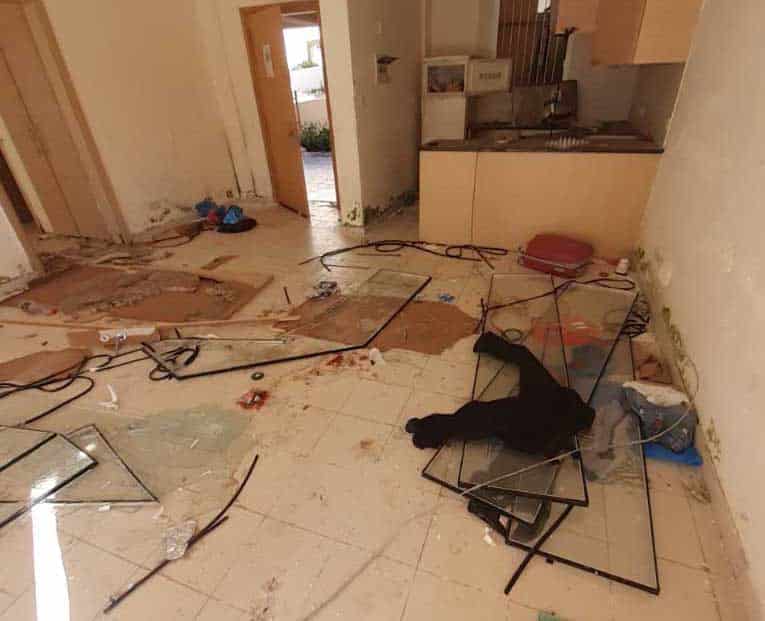
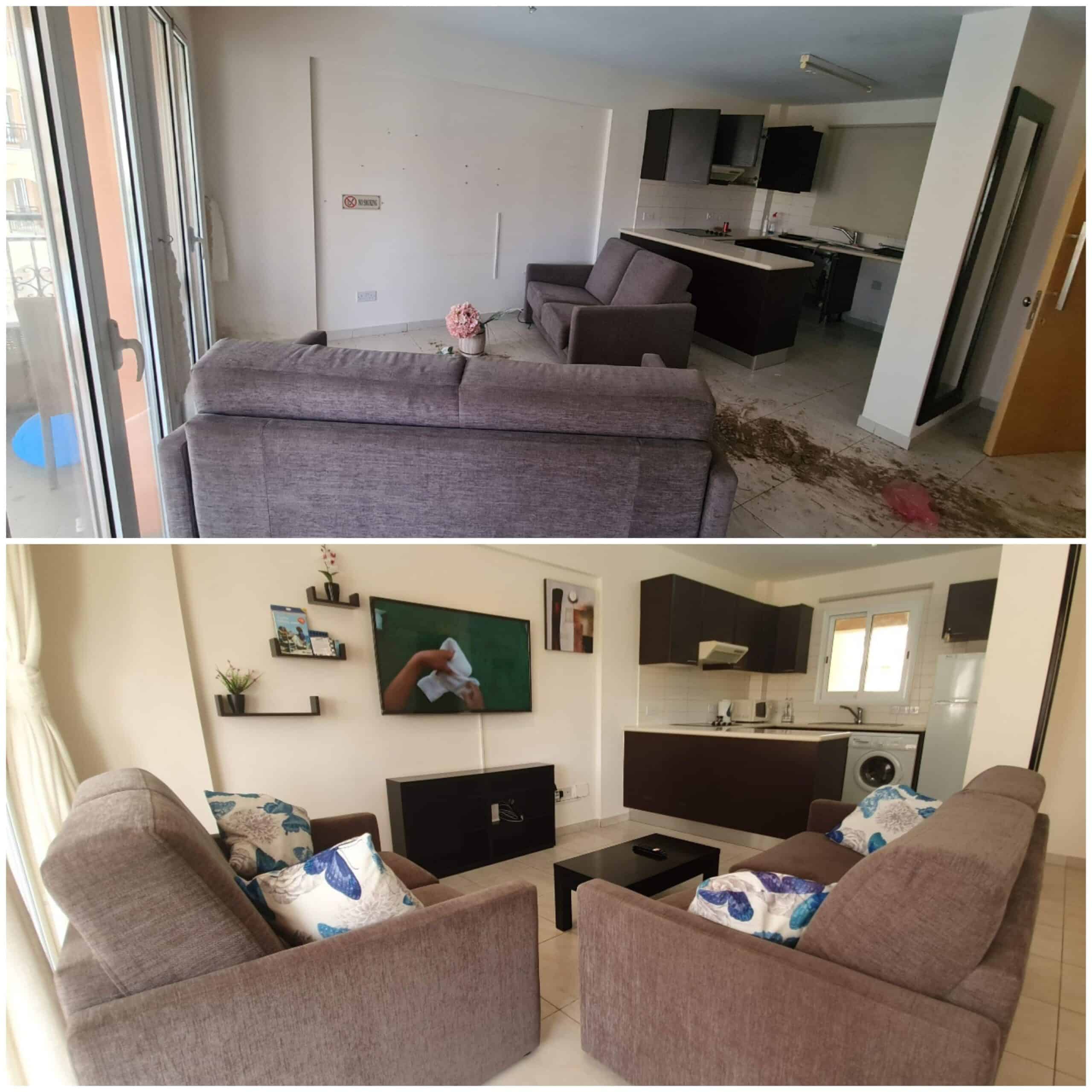
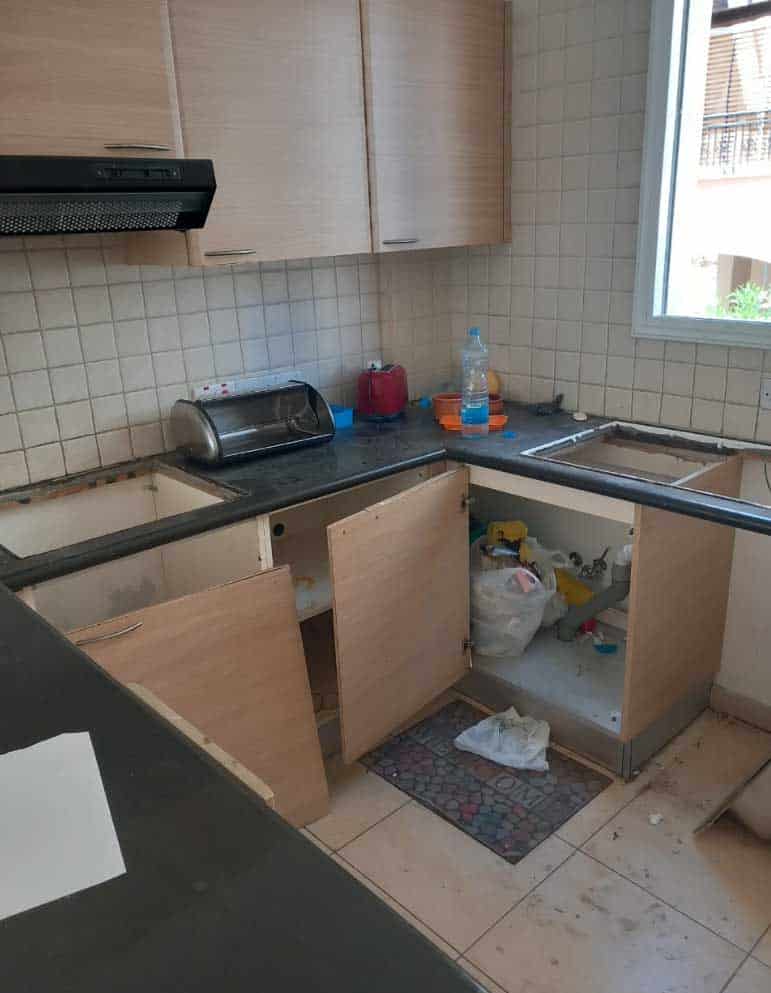
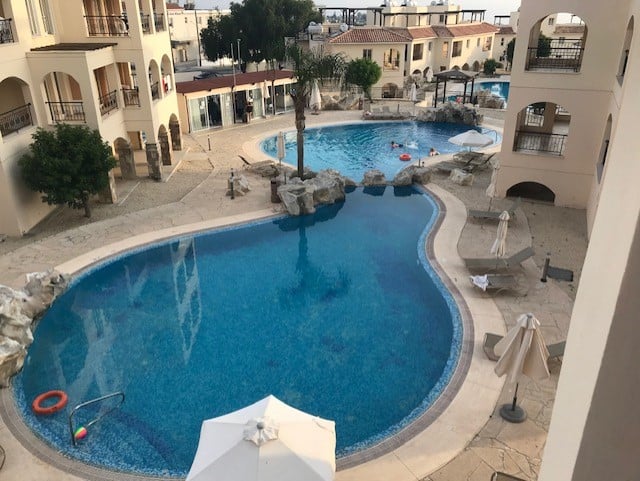
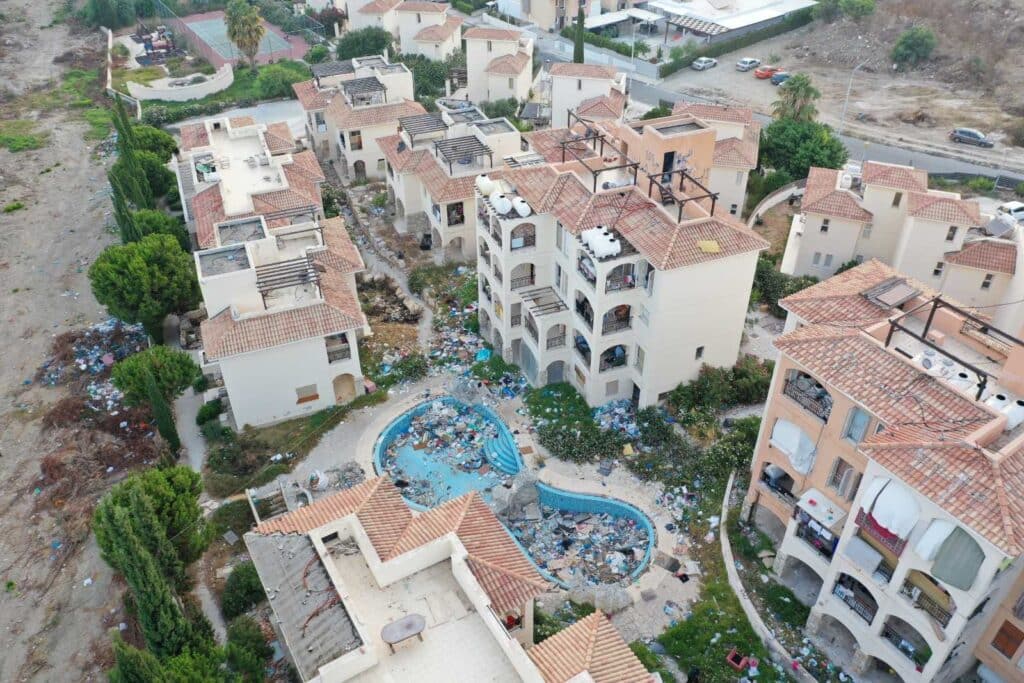





Click here to change your cookie preferences